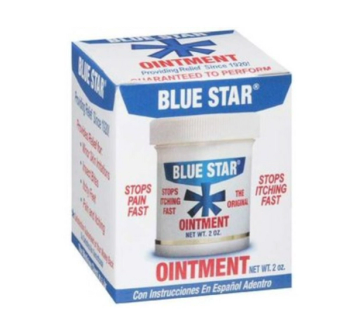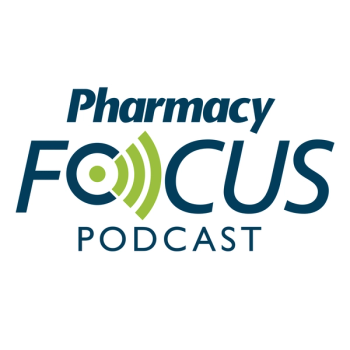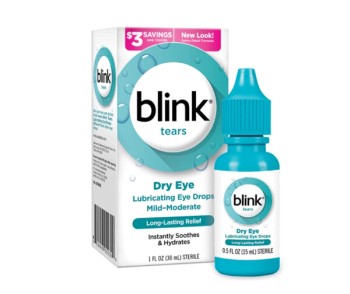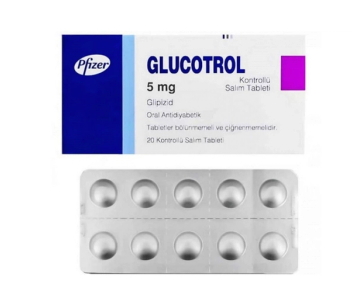
Blue Star Ointment is used for skin issues such as itchiness, scaly, dry skin, eczema, rashes, ringworms, jock itch, and athlete’s foot.

Blue Star Ointment is used for skin issues such as itchiness, scaly, dry skin, eczema, rashes, ringworms, jock itch, and athlete’s foot.

Although seemingly basic, handwashing can protect from a variety of illnesses and even decrease antibiotic resistance.

In the earliest stage of frostbite, there is no permanent damage to the skin.

Teena Chopra, MD, MPH, professor of infectious diseases at Wayne State University, discussed how microbiome-based therapeutics may impact the current treatment landscape for C. diff infection and recurrent C. diff infection.

Teena Chopra, MD, MPH, professor of infectious diseases at Wayne State University, discussed the current burden of C. diff infection and recurrent C. diff infection.

Although it was previously known that HZ incidence and HZ-related complications occur more frequently and with higher severity in solid organ transplant recipients, numbers varied extensively between studies.

Teena Chopra, MD, MPH, professor of infectious diseases at Wayne State University, addressed the risk factors for C. diff infection and recurrent C. diff infection.

An FDA decision regarding Merck's COVID-19 oral antiviral is imminent, but a recent CMS decision could limit patient access.

Apotex, Sandoz, and Taro allegedly cause an increase in drug costs for federal health care programs and beneficiaries.

Whether it's a mask falling off of your nose in the pharmacy or improper drive-thru etiquette, Dr. Mitch Lee has seen it all!

Blink Tears Lubricating Eye Drops maximizes hydration and restores tears’ natural salt balance.

Glipizide stimulates beta cells to produce more insulin in the body.

The car crashes occurring on December 24 and December 31 due to impaired driving account for approximately 50% of all traffic fatalities a year.

The risk of developing frozen shoulder increases during recovery from a medical condition or procedure that prevents arm movement.

Teena Chopra, MD, MPH, professor of infectious diseases at Wayne State University, addressed the relationship between gut microbiome and C. diff infection.

Teena Chopra, MD, MPH, professor of infectious diseases at Wayne State University, discusses the current treatment strategies for C. diff infection and recurrent C. diff infection, as well as the efficacy and safety of these treatments.

Teena Chopra, MD, MPH, professor of infectious diseases at Wayne State University, explains what the gut-brain axis is and how microbiome impacts this connection.

Clonidine, Estradiol, Fentanyl, and Scopolamine are involved most frequently, an ISMP review shows.

Studies are currently underway to determine the impact of the Omicron COVID-19 variant on the long-acting antibody combination.

Saol Therapeutics also announces the acquisition of 4 plasma-derived hyperimmune products by Kamada, which will be invested to help launch Lyvispah and other pipeline developments.

NeilMed Sinus Rinse Kit treats stuffy nose, post-nasal drip, dryness inside the nose and nasal passages, or nasal irritation caused by colds, flu, allergies, or pollutants.

Factor V Leiden can increase the chance of developing abnormal blood clots, most commonly in the legs or lungs.

The investigators found that modeling was a cost-effective method for determining the functionality of the proposed blueprint by transforming it into a physical space.

Organizational citizenship can be described as behaviors that are discretionary, not necessarily formally recognized by the formal reward system, and are not expressly described in the context of job duties.

Based on experience with other variants, Pfizer and BioNTech have high confidence that if needed, they can deliver an Omicron-based COVID-19 vaccine in March 2022.

The findings of a study showed that the percentage of “I am satisfied with my job” respondents increased by 28.7% for those in the pilot and decreased by 17.9% for those not in the pilot.

Although the test does not definitively diagnose problems such as Alzheimer disease, it helps physicians get a baseline of their patients’ cognitive functioning.

The panelists reviewed current treatments for Clostridioides difficile infection and how they can be applied to special patient populations, as well as what treatments can be expected in the future.

The analysis showed that the synchronization of bilateral anterior temporal and right central EEG signals in β-band tended to decrease for individuals with acute herpes zoster.

Amid the current shortage in the pharmacy technician workforce, career ladder programs could improve pharmacy technician recruitment and retention rates.